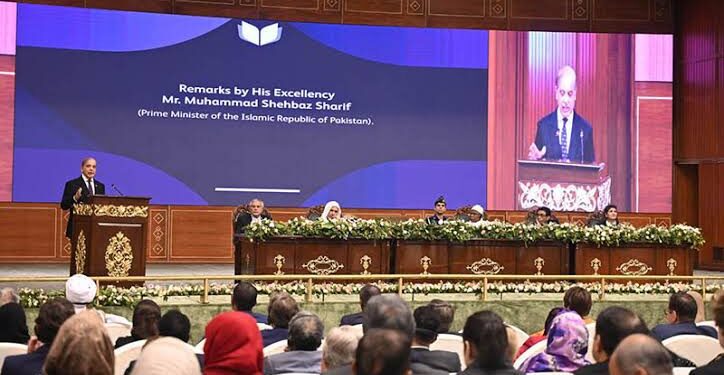The Afghan Taliban’s decision to skip the Global Summit on Girls’ Education in Muslim Communities, hosted in Islamabad on January 11-12, 2025, has sparked criticism. The event aimed to address barriers to education for girls in Muslim societies. Afghanistan remains the only Islamic country where girls are barred from education beyond sixth grade.
Pakistani officials confirmed that a formal invitation was sent to the Taliban government in Kabul. However, no response was received. Education Minister Khalid Maqbool Siddiqui said to a news agency;
“We had extended an invitation to Afghanistan but no one from the Afghan government was at the conference.” He added, “Nevertheless, representatives from various organizations dedicated to girls’ education in Afghanistan will be participating.”
A Global Call for Action
The conference drew over 150 dignitaries, including ministers, scholars, and academics from 44 nations. Representatives from UNESCO, UNICEF, the World Bank, and the Organization of Islamic Cooperation also participated. Speakers highlighted that restricting girls’ education violates Islamic principles.
Mohammad bin Abdulkarim Al-Issa, Secretary-General of the Muslim World League, emphasized that Islam supports education for both men and women. In a televised address, he stated, “Those opposing women’s education are misguided and do not represent true Islam.”
Prime Minister Shehbaz Sharif announced that the summit’s Islamabad Declaration would be presented to the United Nations as a collective aspiration of the Muslim world. The declaration commits to fostering inclusive and sustainable educational reforms.
Malala Yousafzai’s Advocacy
Nobel laureate Malala Yousafzai, a prominent advocate for girls’ education, addressed the gathering. She urged global leaders to hold the Taliban accountable for their policies. Malala, who survived a 2012 assassination attempt by the Pakistani Taliban, expressed her determination to fight for Afghan girls. “Protecting the right to education is essential for all girls,” she stated.
Malala praised the summit for uniting Muslim leaders to advocate for education and equality. Her presence underscored the importance of international solidarity in addressing this crisis.
The Dire Situation in Afghanistan
Since the Taliban’s takeover in 2021, they have banned 1.4 million Afghan girls from attending secondary and higher education. This decision contradicts two decades of progress in education. UNESCO reports that Afghanistan’s primary school enrollment dropped from 6.8 million in 2019 to 5.7 million in 2022.
The Taliban’s restrictions extend beyond classrooms. Female teachers cannot teach boys, leading to further enrollment declines. Many families face economic hardships, discouraging them from sending their children to school.
The International Response
Global organizations have condemned the Taliban’s policies. UNESCO warned that Afghanistan risks losing an entire generation to illiteracy. This regression threatens long-term development and stability in the region.
The summit’s participants called for collective action to address the crisis. They stressed that education is a fundamental right and a key driver of progress in Muslim societies.
Why Afghanistan’s Participation Was Crucial
The absence of Afghan Taliban officials at the Islamabad summit raised critical questions. Their participation could have facilitated dialogue and encouraged reforms. By refusing to attend, the Taliban missed an opportunity to engage with the global community and address concerns.
Afghanistan’s exclusion from global education efforts undermines its future. International leaders must continue pressuring the Taliban to lift these bans. Education is not only a right but also a necessity for rebuilding the nation. World leaders, including Malala Yousafzai, called for accountability, urging the Taliban to lift the ban on girls’ education. The continued denial of education for Afghan girls will have long-lasting consequences, stalling the country’s development and undermining progress in the region.
The Global Summit on Girls’ Education in Muslim Communities emphasized the urgent need for inclusive education policies. Afghanistan’s absence highlighted the challenges faced by its girls and women.
Global leaders, including Malala Yousafzai and Prime Minister Sharif, called for accountability and collective action. The Islamabad Declaration represents a unified commitment to empowering girls through education.
The world must not abandon Afghan girls. Advocacy, dialogue, and pressure are essential to ensuring their right to education and a brighter future.
Related Stories:
Pakistan Hosts International Summit on ‘Girls’ Education in Muslim Communities’
Taliban Bans Afghan Women from Nursing and Midwifery Education, Deepening Healthcare Crisis
















